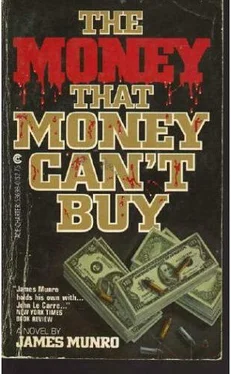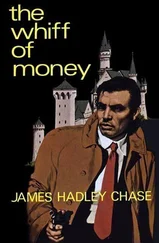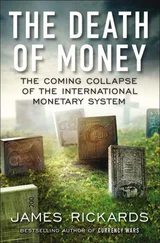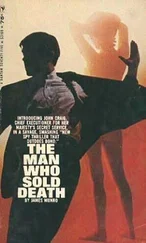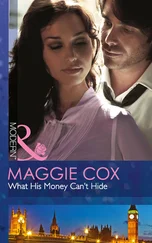"Are they going to get him?" asked Craig.
"Depends," said Loomis, and settled the Rolls in the outside lane of the highway, where it whispered along at an unvaried 69.5 mph. Behind it the Astin Martins, Mercedeses, Ferraris, and Jaguars lined up in frantic procession. Loomis ignored them all.
"You cut up a bit rough this afternoon," he said. "Belting a woman."
"You wouldn't have lasted three rounds with her," said Craig.
"Wouldn't want to," replied Loomis. "Then you had to go and start a massacre in a cafe."
"I was supposed to be massacred," Craig said. "They had coshes and razors and lumps of lead pipe."
"You broke Fat Arthur's arm. How big was he?"
"About your size," said Craig.
Loomis looked at him, carefully and long, and the Rolls went on all by itself.
"You're getting cheeky," he said. "Don't get cheeky."
"I like to know what's going on," said Craig.
But Loomis knew that Craig functioned best on an unrelieved diet of frustration.
"Tell me what you found out," Loomis said.
They had, of course, no knowledge of anything when Craig first questioned them in the interrogation room at Bow Street. The game had broken up at five that morning, Driver had been a big winner, and they'd all gone home. None of them had seen Driver again. Then somebody had tipped Fat Arthur off that Craig had murdered Driver and was with the body. The call, Arthur insisted, had been anonymous. He had collected the other two and he, the most improbable Sir Galahad of all, charged to the rescue. Or at any rate tried. Craig had then beaten him unconscious, and that had been all. His alibi—a small, loud, drunken shrew who had despised him enough to marry him—was unshakable. So were those of his allies. The crone who had gone downstairs minutes before Craig knew nothing except that there was one man left unhung.
Craig had persisted, and had learned many things. Brodski owned most of the cafe, and Arthur was afraid of him; Brodski had disliked Driver intensely but had not banned him from the game; there was no address at which Brodski could be reached when his club shut down. Craig had also been intrigued by the fact that Fat Arthur knew he had fought a woman and had attacked him before he had seen Driver's body. The urge to avenge a friend must have been overwhelming. Fat Arthur and his friends denied, over and over, that Brodski had made the phone call. Craig knew they lied. He left them while Millington was intoning the litany of assault with a deadly weapon, and went back to the strip club.
Brodski had gone, and nobody, least of all Jennifer, knew where to reach him. The telephone number he had left was that of an answering service, and the answering service regretted that they could never, never divulge that kind of thing on the phone. Craig telephoned Millington and told him to check on that angle, then bought more champagne for Karen, Tempest, and Maxine. When Harry served them his hands were shaking so badly that he couldn't get the cork out of the bottle. Craig did it for him.
"O-o-o you are nervous tonight, sweetie," said Tempest.
"You've heard, haven't you, luscious?" said Maxine, and Harry bolted back to the bar.
"Heard what?" asked Craig.
"The way you beat up Fat Arthur," said Max-ine. "It's all over the parish."
"What d'you do it for?" Tempest asked.
"He puts saccharin in his coffee," said Craig.
"They say you killed Tony Driver, too," said Karen. She didn't seem worried by this, merely interested.
"I found him dead," said Craig. "I was looking for a poker game."
Karen put an arm round his shoulders, and looked into his eyes. Her fingers massaged the back of Craig's neck, and her eyes were large and limpid. She had drunk a lot of champagne.
"You're not a copper, darling, are you?" she asked. "I couldn't bear it if you were a copper."
Craig said: "I'm a collector."
"What do you collect?" Tempest asked.
"Money," said Craig.
"Oh how super," said Maxine.
He had told them then that he had come to collect some from Brodski, and they loved him more than ever, because they were wary of Brodski, who, they were sure, was as normal as a man could be, and yet never, never failed to show them, with extreme courtesy, how little he needed them. Unfortunately, they knew nothing more about him except that he paid them well and made no demands. Driver had at least made an effort. He'd invited them to a party at his flat. But he'd been broke, so they hadn't gone. But Karen had written his address down somewhere—on her bra, she thought. She looked, and Harry yawned, and Craig sweated, and there it was. He'd had a hard time getting away.
All Driver had carried, apart from his wallet, was a key, and Craig took that to a little street in Belgravia. The key opened the door, and Craig went inside at once, cat-footed warily, but all the small, neat rooms held was emptiness and silence. The house was small and unobtrusive, built in single tiers like a layer cake, bedroom on dining room on kitchen, bath and loo on living room. And all anonymous and noncommittal, rented by the month from a retired major in the Blues, according to the rent book. The house showed little evidence of Driver's ever having been there, apart from his clothes. The clothes interested Craig: they were all bought at Simpson's in Piccadilly, and none of them looked old; in fact, they looked as if they had all been bought at the same time. Craig searched on. Two empty suitcases, an empty grip, an empty Pan Am flightbag. He looked beneath the bed, in the trap beneath the washbasin, the toilet tank, the bath tank. Nothing. Driver was no more than seven suits, five pairs of slacks, six pairs of shoes, and some expensive cashmere. And then he found it, beneath the bottom shelf of the wardrobe—a fiberglass briefcase with the most effective locks Craig had ever seen. He smashed them open at last with a wrought-iron lampstand. Inside the case were a Walther P38 with a three-inch barrel, a thousand pounds in one-pound notes, four twenty-dollar bills that matched the one Loomis had given him, and five decks of playing cards with the seals unbroken. Craig broke them. Every pack of cards was marked.
He emptied the briefcase, then attacked it again with the lampstand, bringing it down with all his strength on the case's lid and container. They cracked eventually, and Craig probed into the cracks with a carving knife, his hands careful and precise. The container yielded nothing except four clips of bullets for the Walther. Craig pocketed them, and the weapon: a Walther was always a reliable gun. The lid held an I.O.U. from Fat Arthur to Driver for one thousand pounds, a Swiss passport in the name of Dumont, and a German passport made out to Donner. Both the passport photographs were of Driver. Craig thought he
must like the letter D.
* * *
"Driver's suitcase was made in Germany," said Loomis, and for some reason he slowed down to run parallel with a hearse that was moving at twenty miles an hour. Anguished squeals of brakes behind him proclaimed that other drivers too were showing their last respects.
"So were his handkerchiefs," said Loomis, and removed his hat, a battered unconquerable bowler. "Know what?" He looked at Craig, and accelerated craftily. The Rolls reached a speed of 69.5 mph again, and the Ferrari behind almost stalled.
"The playing cards were made in Germany, too," Loomis said. "You could win at anything with those cards. Naughty." He drove on, then added: "We never found Brodski. He's done a bunk." More driving, while he scowled at the Ferrari, now visible again in his rear-view mirror.
"Think he killed Driver?" Loomis asked.
"Brodski? For a dud twenty-dollar bill?"
"It could be just for that," said Loomis.
"Brodski chased Driver for one bad debt— chased him and killed him?"
Читать дальше
